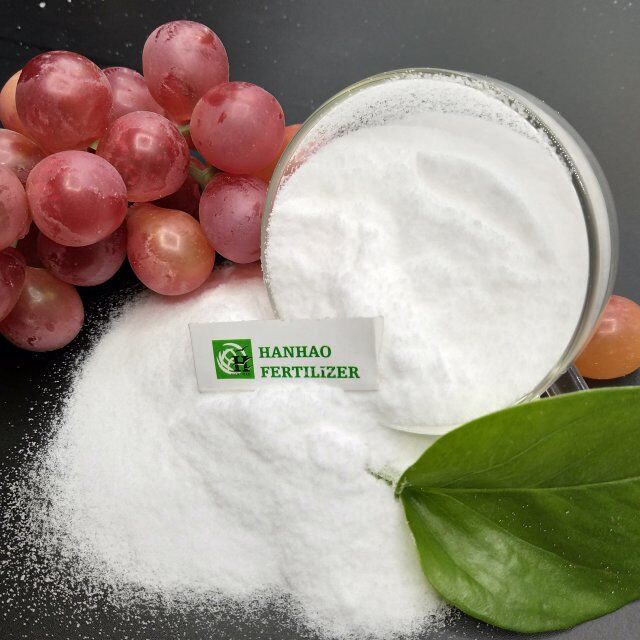
Dec . 04, 2024 05:24 Back to list
Purchase 5-0-20 Fertilizer for Optimal Plant Growth and Enhanced Yields
The Importance of 5-0-20 Fertilizer in Modern Agriculture
In the realm of modern agriculture, the careful selection of fertilizers is essential for optimizing plant growth, enhancing yield, and ensuring sustainable practices. Among the various fertilizers available, the 5-0-20 fertilizer formulation stands out, specifically tailored to meet the needs of certain crops and soil types. This article explores the composition, benefits, and best practices for using 5-0-20 fertilizer, highlighting its significance in agricultural production.
Understanding the Composition
The numbers in the 5-0-20 fertilizer formulation denote its N-P-K ratio 5% nitrogen (N), 0% phosphorus (P), and 20% potassium (K). Each component plays a crucial role in plant health. Nitrogen is vital for leafy growth and overall biomass, phosphorus is essential for root development and energy transfer, while potassium regulates various physiological processes, including water regulation, enzyme activation, and photosynthesis.
The unique aspect of 5-0-20 fertilizer is its high potassium content paired with a low nitrogen level. This composition makes it particularly suitable for certain crops that require substantial potassium for optimal growth while not needing excessive nitrogen, which can lead to lush foliage but compromised fruit or flower production.
Benefits of Using 5-0-20 Fertilizer
1. Enhanced Fruit and Flower Production Crops such as tomatoes, cucumbers, and various fruit trees benefit significantly from additional potassium. The 5-0-20 fertilizer supports the development of strong fruit and flower sets, leading to higher yields and improved quality.
2. Improved Stress Tolerance Potassium plays a critical role in a plant's ability to manage stress factors, such as drought and disease. By using 5-0-20 fertilizer, farmers can help crops withstand environmental pressures more effectively, ensuring a more reliable harvest.
3. Soil Health The use of fertilizers can significantly impact soil health. The balanced application of nutrients, such as those found in 5-0-20 formulations, can enhance soil structure and water retention, promoting better conditions for root development.
4. Targeted Nutrient Management This fertilizer allows for targeted nutrient management. Farmers can apply it specifically when potassium needs are high, especially during critical growth stages. This precision helps in reducing excess nutrient runoff, thereby minimizing environmental impact.
buy 5-0-20 fertilizer

Best Practices for Application
When considering the application of 5-0-20 fertilizer, several best practices should be followed
1. Soil Testing Always begin with a comprehensive soil test to determine existing nutrient levels. This information will guide the decision on fertilizer application rates and timing.
2. Timing of Application Potassium uptake typically peaks during the flowering and fruiting stages of crop development. Therefore, applying 5-0-20 fertilizer during these crucial periods ensures that plants receive the nutrients they need at the right time.
3. Proper Application Rates Over-application can lead to nutrient imbalances and environmental issues. Follow recommended application rates based on soil test results and crop requirements.
4. Integrating with Other Nutrients While 5-0-20 is excellent for potassium management, it is essential to track nitrogen and phosphorus levels, particularly if the crop has specific needs for these nutrients at various growth stages. Combining fertilizers judiciously can create a balanced feeding program.
5. Monitoring Crop Response After application, closely monitor plant growth and development. Adjustments may be necessary based on real-time observations and ongoing soil testing.
Conclusion
The use of 5-0-20 fertilizer represents a strategic approach to nutrient management in agriculture. Its high potassium content can lead to enhanced fruit and flower production, improved stress tolerance, and healthier soil. However, successful application requires careful planning, soil testing, and adherence to best practices. As farmers continue to seek ways to maximize their yields sustainably, the importance of specialized fertilizers like 5-0-20 will only grow, making it a vital tool in modern agricultural practices. With the right knowledge and application strategies, farmers can leverage this fertilizer to support healthy crop growth and contribute to food security.
-
Organic 10-10-10 Fertilizer: Balanced NPK for Healthy Plants
NewsAug.27,2025
-
10 10 10 Organic Fertilizer: Balanced NPK for Healthy Plants
NewsAug.26,2025
-
Organic 10-10-10 Fertilizer: Balanced NPK for Healthy Plants
NewsAug.25,2025
-
Premium 15-30-15 Granular Fertilizer for Vigorous Growth
NewsAug.24,2025
-
Organic Amino Acid Fertilizer for Plants | Boost Growth & Yield
NewsAug.23,2025
-
Calcium Ammonium Nitrate (CAN) White Granular Agriculture Fertilizer
NewsAug.22,2025
